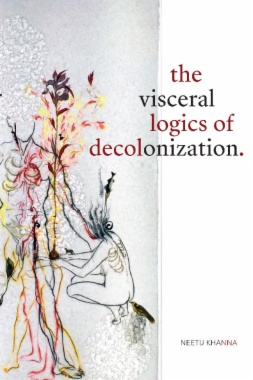In The Visceral Logics of Decolonization Neetu Khanna rethinks the project of decolonization by exploring a knotted set of relations between embodied experience and political feeling that she conceptualizes as the visceral. Khanna focuses on the work of the Progressive Writers' Association (PWA)—a Marxist anticolonial literary group active in India between the 1930s and 1950s—to show how anticolonial literature is a staging ground for exploring racialized emotion and revolutionary feeling. Among others, Khanna examines novels by Mulk Raj Anand, Ahmed Ali, and Khwaja Ahmad Abbas, as well as the feminist writing of Rashid Jahan and Ismat Chughtai, who each center the somatic life of the body as a fundamental site of colonial subjugation. In this way, decolonial action comes not solely from mental transformation, but from a reconstitution of the sensorial nodes of the body. The visceral, Khanna contends, therefore becomes a critical dimension of Marxist theories of revolutionary consciousness. In tracing the contours of the visceral's role in decolonial literature and politics, Khanna bridges affect and postcolonial theory in new and provocative ways.
- Cover
- Contents
- Acknowledgments
- Introduction. The Visceral Logics of Decolonization
- 1. Agitation�������������������
- 2. Irritation��������������������
- 3. Compulsion��������������������
- 4. Evisceration����������������������
- Coda. Explosion����������������������
- Notes������������
- Bibliography�������������������
- Index������������

